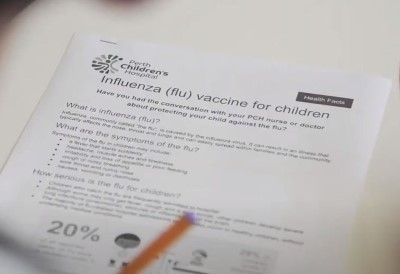Search
Showing results for "Au"
Research
House dust mite allergens in asthma and allergyIgE antibodies in house dust mite (HDM) allergy follow a predictable pattern. Half are directed against two dominant allergens and the remainder largely against

News & Events
Expert researchers converge on Broome to tackle health challenges in Northern AustraliaOver 100 researchers and health professionals from around Australia have united in Broome this week to address the major health battles facing people living in the tropical north of the country.

News & Events
WA Government delivers funding boost to research sectorMEDIA ENQUIRIES Mailing list Discover. Prevent. Cure. Media Contacts Be Inspired About The Kids Please direct general enquiries to our reception on (

News & Events
RSV and influenza detections hit record low levels in 2020Western Australia has experienced historically low levels of respiratory syncytial virus (RSV) and influenza this winter due to the public health measures implemented to prevent the spread of COVID-19.

News & Events
Flu jab for school kids best defence from virus, experts sayUp to 40,000 influenza cases could be prevented in Western Australia this winter if more primary school-aged children were vaccinated, researchers at The Kids Research Institute Australia have found.
Research
The Impact of Modulator therapy from Early life on lung health trajectories in Cystic Fibrosis (TIME-CF)Cystic fibrosis is an inherited condition that results in chronic lung disease. In recent years, a new type of medication called CFTR modulators has become available.
News & Events
Clinic update - December 2023There is lots of news to report from the clinic including holiday shutdown dates, appointment scheduling, staff updates, changes to creche, and service availability.
Research
Innate epithelial and functional differences in airway epithelium of children with acute wheezeEarly childhood wheeze is a major risk factor for asthma. However, not all children who wheeze will develop the disease. The airway epithelium has been shown to be involved in asthma pathogenesis. Despite this, the airway epithelium of children with acute wheeze remains poorly characterized.
Research
AI-Driven Cell Tracking to Enable High-Throughput Drug Screening Targeting Airway Epithelial Repair for Children with AsthmaThe airway epithelium of children with asthma is characterized by aberrant repair that may be therapeutically modifiable. The development of epithelial-targeting therapeutics that enhance airway repair could provide a novel treatment avenue for childhood asthma.
Research
Identifying barriers and facilitators for the effective diagnosis and provision of primary health care for otitis media from the perspective of carers of Aboriginal childrenTo identify the barriers and facilitators for timely detection and optimal management of otitis media in Aboriginal children in a primary care setting from the perspective of carers of Aboriginal children.
